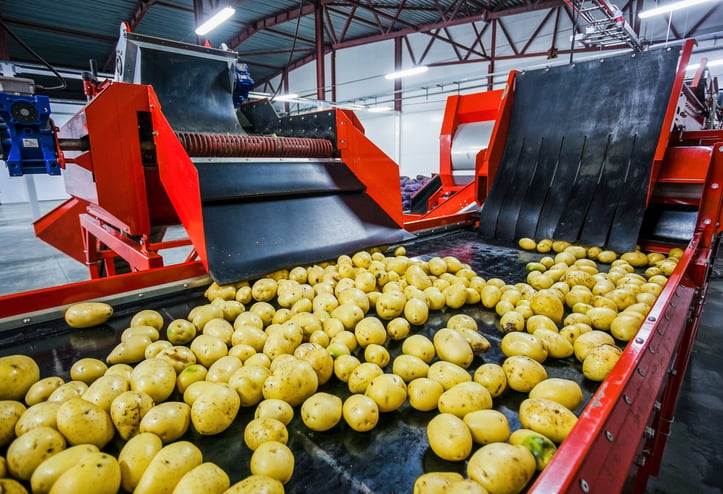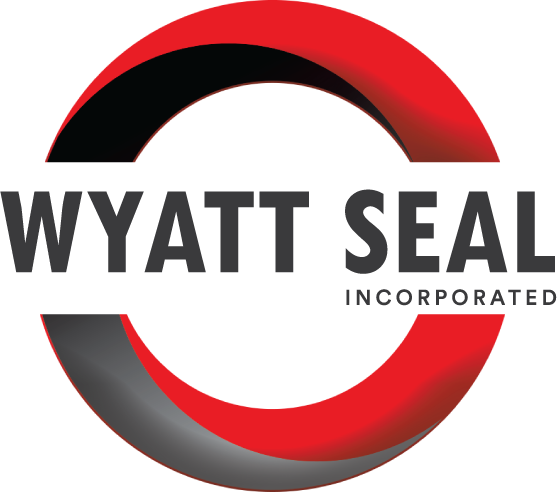
In the food processing industry, seals play an indispensable role in maintaining product integrity throughout various stages of production, ensuring compliance with U.S. Food and Drug Administration (FDA) regulations. In processing plants, seals such as O-rings, gaskets, and diaphragms are utilized in equipment such as mixers, blenders, and packaging machinery to prevent leaks, spills, and cross-contamination. These seals create a barrier against microbial contamination and help preserve the freshness and quality of food products. In essence, seals are essential components of the food processing industry, safeguarding both the quality of products and the health of consumers while meeting stringent regulatory standards set forth by organizations like the FDA.
Versatile Applications of Seals in food processing
Seals in the food processing industry serve a multitude of purposes, ensuring product safety and operational efficiency. Examples of key areas where seals are used include:
- Pump Seals: Seals play a crucial role in pumps used for transferring liquids such as sauces, juices, and syrups. Shaft seals prevent leakage around the rotating shaft, ensuring that the product remains contained within the system without any risk of contamination.
- Valve Seals: Valves are essential components in food processing equipment, controlling the flow of liquids, gases, and solids. Seals in valves ensure tight shut-off to prevent leakage and maintain hygiene standards during processing.
- Tank and Vessel Seals: Large tanks and vessels are used for mixing, storing, and transporting various food products. Seals around access ports, manways, and inspection hatches prevent leaks and contamination, maintaining the integrity of the stored product.
- Conveyor Seals: Conveyors are integral for transporting food products between different processing stages. Seals in conveyor belts and systems prevent spillage, minimizing product waste and maintaining cleanliness in the processing environment.
- Packaging Machine Seals: Seals are essential components in packaging machines used for sealing bags, pouches, and containers. They ensure airtight seals to preserve product freshness and prevent contamination during packaging.
Diverse Array of FDA-compliant Seals
A variety of seal types fulfill FDA requirements, each tailored to specific applications and environments within the food processing industry. Some of the most prevalent types include:
- O-Rings: These versatile seals are available in various materials such as EPDM, nitrile rubber, fluorocarbon, neoprene, and silicone, each offering unique properties suited to different operating conditions.
- Gaskets: From flat gaskets to molded ones, these sealing elements find extensive use in piping systems, equipment lids, and access panels, providing a dependable barrier against leaks and contamination.
- Lip Seals: Employed in equipment like pumps and mixers, lip seals—also known as radial shaft seals—prevent the ingress of contaminants into critical components, ensuring operational integrity.
- Diaphragms: Flexible and resilient, diaphragms play a crucial role in regulating pressure and flow within processing equipment, facilitating precise control over the manufacturing process while upholding hygiene standards.
- PTFE Seals: These seals offer exceptional chemical resistance and are often employed in applications where aggressive chemicals are present, such as cleaning solutions used in food processing equipment.

Navigating FDA Regulations
Navigating FDA regulations in the food processing industry is essential for compliance and maintaining food safety standards. Regulations entail strict adherence to FDA-approved materials and specifications for equipment components like seals. They involve thorough testing and documentation to ensure seals meet criteria such as resistance to contamination, non-toxicity, and temperature resistance. By following these regulations diligently, food processors can ensure that their seals uphold product integrity and protect public health.
- Material Compliance: Seals must be crafted from FDA-approved materials to guarantee that they do not pose any health risks or contaminate the food product.
- Resistance to Contamination: Seals should resist the accumulation of bacteria and other harmful contaminants, preserving the purity of the food throughout the processing journey.
- Non-Toxicity: Materials utilized in seals must be non-toxic and non-allergenic, ensuring they do not introduce any harmful substances into the food chain.
- Temperature Resistance: Seals must demonstrate reliability across a broad range of temperatures, particularly in the face of high temperatures prevalent in food processing operations.
The versatility of seals in the food processing industry extends across various applications, from pumps and valves to packaging machines, ensuring product safety and operational efficiency. With a diverse array of FDA-compliant seal types available, including O-rings, gaskets, and diaphragms, manufacturers can navigate stringent regulations while upholding food safety standards, safeguarding both product integrity and consumer health throughout the processing journey.
If you need help navigating this process to find the right seal for your project, talk to a seal expert at Wyatt Seal. We’ve spent 50 years building relationships with seal manufacturers worldwide to offer you access to thousands of seals, gaskets, O-rings, and other specialty items for any application.

